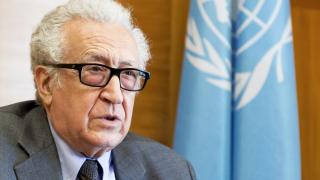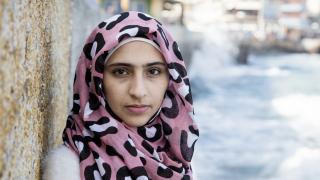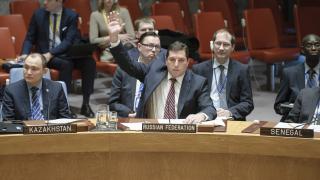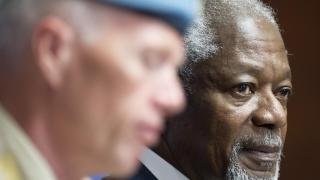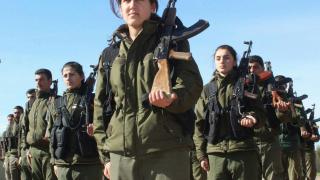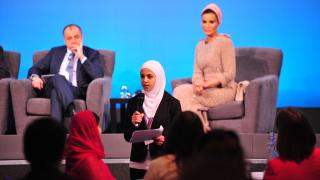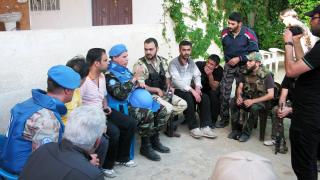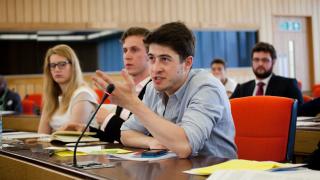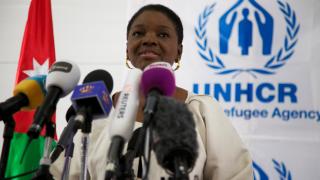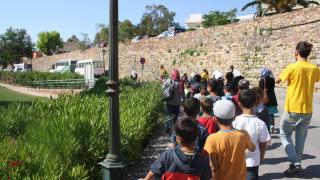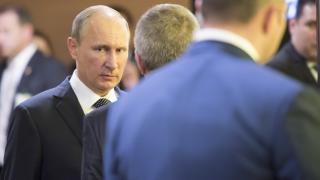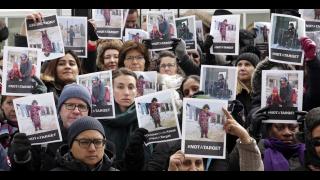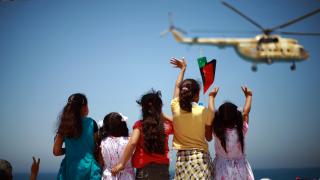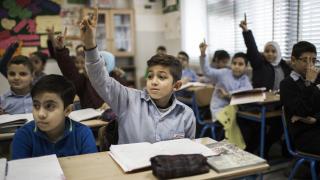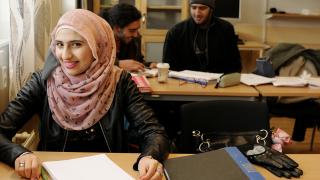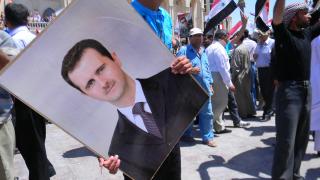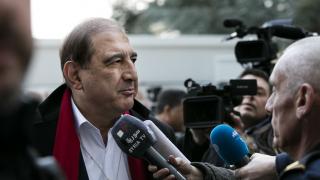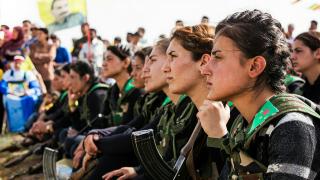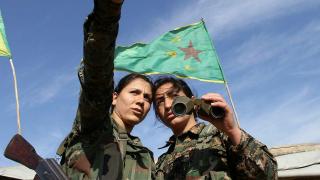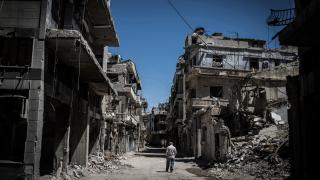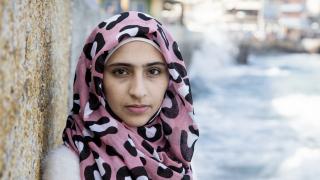
In an exclusive interview, UNA-UK spoke to Melissa Fleming, Spokesperson for the UN High Commissioner for Refugees, about the major challenges faced by UNHCR on the front lines of the Syrian crisis, and the inspiration behind her new book, A Hope More Powerful Than the Sea, which recounts the story of Doaa, a Syrian refugee.
Refugees are ordinary people forced to do extraordinary things. What was it about Doaa’s story that spoke to you?
Agreed – refugees are extraordinary survivors and the stories they tell me leave me both unsettled and in awe of their resilience. Doaa’s story struck me harder than most and also inspired me – she didn’t just survive the war, but also one of the worst shipwrecks on the Mediterranean Sea, and even saved a baby girl, Masa.
You tell Doaa’s story in a way that brings us close to her but also leaves us acutely aware that she is one of many. Tell us about the process of putting the book together.
When I read about Doaa and baby Masa - who survived four days and nights on a child’s floating ring in the middle of the sea with no food and no water and everyone, including the love of her life, dying around her - I flew to Crete to meet her.
For some reason, she entrusted me with her harrowing story. She was deeply traumatised by the hell of those days. She deeply missed her fiancé, Bassem, and sometimes wished she had died with him. Her only consolation was her conviction that God gave her the strength to survive so she could save little Masa. She soon also became convinced that by allowing me to tell her story, she would be helping to build empathy for all Syrians forced to flee.
For many who survive war, telling their story is a crucial part of rebuilding their lives. It also places a responsibility on those who hear it. How do you and your colleagues deal with issues such as the risk of re-traumatisation, and of raising expectations, when you work with refugees to tell their stories?
We always assess the individual refugee’s situation before going public with his or her story to determine whether there are any risks. Sometimes we change names or hide faces to protect family members back home from retribution. For the most part, refugees want the world to know what they have fled from and how they could pick up the pieces of their lives if only they had the chance to heal, work, study. In Doaa’s case, I believe the process of working with me on the book, which involved over 80 hours of interviews over many months, while often painful, was also a catharsis.
Stories matter. Without them, crises are ignored, injustice goes unpunished and people remain invisible. But is story-telling enough? Mediterranean deaths continued to soar after the images of Aylan Kurdi’s body shocked the world. In today’s media culture, do stories still have the power to change hearts, minds and policies?
There is a saying: statistics are human beings with the tears dried off. Refugees are often treated as statistics, dehumanising them and allowing for narratives that promote fear and xenophobia. I am afraid that if we didn’t tell individual stories, there would be even less empathy, fewer donations and more closed borders. Stories capture people’s imaginations and have the power to educate, create sympathy and encourage action.
Do you feel the UN has managed to get the story across with regard to Syria? What messages need to be highlighted in relation to the response of the UN, which some have accused of being a 'helpless bystander'?
I believe the UN humanitarian organisations have done their very best to help the victims of the Syria war despite chronic underfunding. UN staff inside Syria risk their lives to help the population, but agonise over not being able to reach people in besieged or hard-to-access areas. UN mediators have devoted their best diplomatic efforts to try to forge peace. But with the powers that have influence to stop the war divided, the conflict rages on and people continue to flee and die.
How does a UN agency like UNHCR navigate a complex civil war situation like Syria? Can you talk us through some of the humanitarian, political and ethical dilemmas that the agency has faced?
UNHCR has 450 staff working inside Syria. Most are national staff who themselves have lost loved ones and had to leave their homes. Their devotion to working for UNHCR to help their people survive is remarkable because day after day they are risking their lives.
Our biggest challenge as humanitarians is access, and my colleagues are in constant negotiations with the parties in control of different areas to get the green light to deliver aid to civilians in need. This can take days, weeks or even months and it often fails. The idea that children are dying of starvation or mothers are unable to keep their babies warm because we are prevented from reaching them is unbearable and maddening.
Your book raises a number of poignant questions: what if people like Doaa had legal avenues to reach Europe? Why is there no massive resettlement programme for Syrians? Why are the neighbouring countries, which host some five million Syrians, being offered so little funding and support?
When thousands of Syrian refugees arrived in Europe in 2015, most from the neighbouring countries, the world started paying attention to the refugee crisis. European governments finally started to ask about conditions for refugees in Lebanon, Jordan and Turkey and questioned why they would risk their lives to move on to Europe. UNHCR, WFP, UNICEF and our partners started receiving better funding. Development actors such as the World Bank changed their policies to allow for infrastructure development in neighboring countries. Support for education and work programmes grew. Also, a number of countries increased the number of Syrian refugees they would accept under UNHCR’s resettlement programme. So things have improved, but I wish I could say it is enough. Still, for example, only 50 per cent of Syrian refugee children are in school.
You have spoken out about problems with the humanitarian system: the lack of funding and overstretched resources; insufficient emphasis on prevention, which is a priority for the UN Secretary-General; and a narrow approach that focuses mainly on keeping people alive, rather than helping them to thrive. What are the prospects for long-term reform?
The UN Secretary-General has called for a “surge for diplomacy for peace” and has made conflict prevention a priority. We have record numbers of forcibly displaced people in our world today – 65 million. That is a reflection of wars not stopped or prevented. I am very hopeful that the Secretary-General’s new emphasis will reduce the number of conflicts and consequently, the number of refugees.
Meanwhile, as a result of the UN Summit on Refugees and Migrants convened by Secretary-General Ban Ki-moon last September, UNHCR is leading a process that will result in a new Global Compact on Refugees that will aim to ensure countries share responsibility for all kinds of refugee situations while ensuring cooperation between humanitarian, development and peacebuilding actors. So, yes, there is a real prospect that people fleeing for their lives in future will not only receive access to asylum but also the chance to rebuild their lives as they await the chance to return home.
The book ends with a moving note from Doaa: "we put our lives in the hands of cruel and merciless smugglers because we have no other choice ... we are not terrorists. We are human beings just like you." What is your message for those who believe that refugees pose a security threat, and that resettlement programmes 'incentivise' traffickers and refugees?
First of all, it is the refugees who are fleeing threats to their own security. They are seeking a place free of violence. Moreover, UNHCR’s registration system identifies and excludes combatants. Our resettlement programme has stringent screening systems in place even before the screening from the receiving country takes place. This is why we call for the expansion of legal avenues for refugees to reach the richer countries of the world with tried and tested programmes such as resettlement, family reunification or work and student visas. Coupled with more investment for refugees to live decent lives in the neighbouring host countries (86 per cent of refugees are in the developing world), there would be far less incentive for refugees to entrust ruthless smugglers with their lives and attempt the crossing to Europe.
Is there a question that should be asked but rarely is by interviewers?
“What keeps you going when your work is all about wars and human tragedy?” To that, I would answer: the privilege to witness, through the resilience of refugees, the triumph of the human spirit over injustice and evil.
Melissa Fleming is Head of Communications and Public Information / Spokesperson for the UN High Commissioner for Refugees. She was most recently Senior Advisor in UN Secretary-General António Guterres’ transition team. Her new book, A Hope More Powerful Than the Sea, is available to purchase online.
Photo: Doaa Al Zamel, the Syrian teenager featured in Melissa Fleming's book, A Hope More Powerful Than the Sea, Copyright Elena Dorfman

